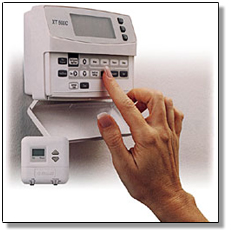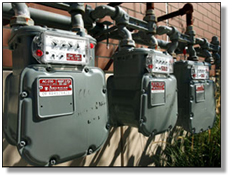Nebraskans Urged to Take Actions to Reduce Winter Heating Costs
With the chill of winter approaching, the Nebraska Energy Office is recommending several steps to lessen the impact of projected heating costs.

“Now is the time to take proactive steps to alleviate some of the strains of higher heating costs,” Gov. Dave Heineman said. “It is my hope that Nebraskans will take advantage of the available information, as well as public and private programs aimed at providing assistance.”
Among the tips being offered are the replacement of oil or inefficient furnaces and/or heating equipment, installing programmable thermostats, performing regular maintenance and setting thermostats to lower temperatures.
Larry Pearce, Assistant Director of Planning and Research for the Nebraska Energy Office, said, “The Energy Office has 5% Dollar and Energy Saving Loans to help finance home improvements addressing the heating and energy efficiency of homes.”
Governor Heineman suggested visiting the Energy Office’s web site for information on low-interest loans and energy saving tips.
The Energy Information Administration has predicted price rises of almost 50 percent for consumers this year. In Nebraska, Metropolitan Utilities District in Omaha said natural gas prices could be up to 50 percent higher. Aquila, which also serves 110 communities in eastern Nebraska, uses a managed portfolio to purchase gas for its customers, which helps stabilize rates and avoid some effects of market price spikes. In general, most central and
 western Nebraska customers served under the Kinder Morgan Choice Gas Program have already locked in much lower rates than current market prices for the heating season. Projections for propane prices in the Midwest have ranged between 29-43 percent above last year’s prices.
western Nebraska customers served under the Kinder Morgan Choice Gas Program have already locked in much lower rates than current market prices for the heating season. Projections for propane prices in the Midwest have ranged between 29-43 percent above last year’s prices.Unusually high demand for natural gas to generate electricity this summer caused the initial rise in price. The two hurricanes that battered oil and natural gas production in the Gulf of Mexico caused prices to go even higher.
Pearce said, “The combination of high demand and reduced production are causing considerable stress on the market for natural gas.”